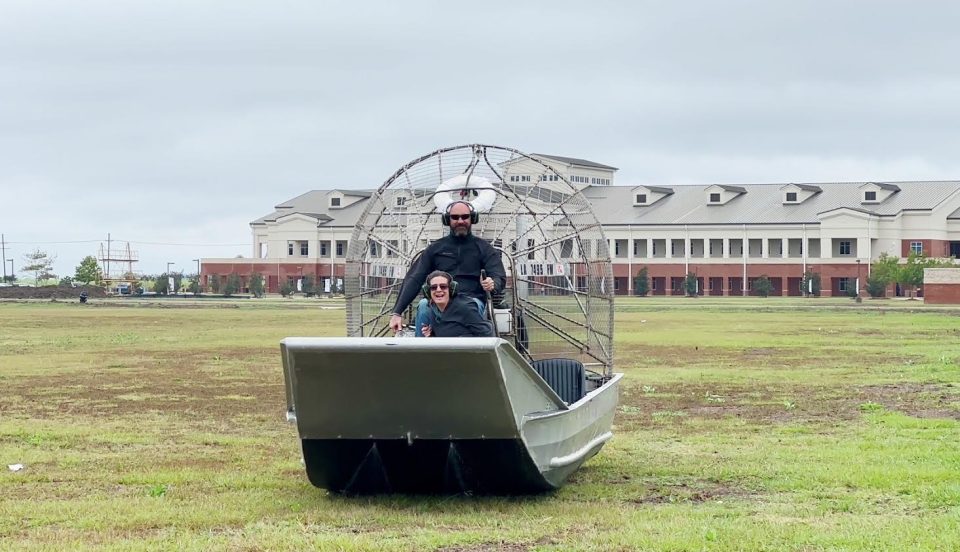Aug. 7-8: Cerebral Palsy Telethon (Houma)
August 3, 2010
Houma’s next power plant may be in M.C.
August 5, 2010The message of becoming a united front across the Gulf Coast Region as the oil disaster continues to claim the livelihoods of thousands has been hard-hitting. Thanks to the annual National Association of Counties (NACo) conference, Terrebonne and Lafourche Parish council members relayed that message to more than 3,000 counties.
“We were greeted by Police Jury Association members and other members from across the Gulf Coast of Lousiana to start lobbying NACo to stand behind us in support of a request against the moratorium,” said Terrebonne Parish Councilwoman Arlanda Williams at last Wednesday’s council meeting. “It was a few long meetings and a couple of long days to go and try to convince people, because people hear one side of the moratorium story, and it was our job to give them the other side of the moratorium story.”
By the end of the conference, held in Reno, Nev., Williams said they were able to produce a NACo supported letter on behalf of the Gulf Coast Region standing against the moratorium.
“We are proud to show you that we have a letter from NACo to the president of the United States of America expressing its concern and support for the southern coast against the moratorium,” she said. “Any time you can get 3,000 counties to side with you, I think it’s an accomplishment that’s worth mentioning.”
Stemming from a 40 to 14 vote in favor of lifting the moratorium from NACo’s land and environment committee, NACo will also send anti-moratorium lobbyists to Capitol Hill.
“They are a strong group who will lobby in our favor,” said Lafourche Parish Councilman Rodney Doucet. “I talked to the recently-elected president of NACo [Glen Whitley], and he said they would do whatever it takes to stop the moratorium.”
The accomplishment didn’t come without convincing however, according to Terrebonne Parish Councilman Alvin Tillman.
“It was very important that we touched base with the individuals that were at that conference, because they were from all over the place and had no idea of the impact of the oil as it relates to where we live,” he said. “And, just to talk to some of those individuals and to see their minds begin to change, to say ‘we had no idea that it was like that,’ was very important.”
Lafourche councilmen share the sentiment, saying it was difficult to convince environmentalist commissioners, as well as those from California and northeastern states, about the dangers of the moratorium to the economy of Louisiana and the nation.
“Me and [Doucet] got in arguments with people in lobbies, busses going to the convention, during the convention, after the convention and on the bus ride back home,” said Lafourche Parish Councilman Mike Delatte. “There are people out there that not only believe in the 6-month moratorium, but to stop offshore drilling completely.”
South Louisiana’s presence as it relates to the oil disaster did not go unnoticed by Environmental Protection Agency’s (EPA) director, Lisa Jackson.
“When one of the council people from Lafourche spoke, Ms. Jackson asked, ‘Is he from Terrebonne or Lafourche?’ She said the accent gave him away,” said Terrebonne Parish Councilwoman Teri Cavalier. “We do have recognition when the EPA director knows us by the parish that we live in.”
In that conversation, Doucet asked Jackson why the EPA hadn’t joined Lafourche’s effort seeking the U.S. Army Corps of Engineers approval to close gaps along the coast to prevent oil from reaching the marshes and harming wetlands and wildlife.
“Her comment was that one government department does not go against another government department,” Doucet said.
Cavalier added what Jackson will be able to do remains to be seen, but the message was heard.
“When you have the opportunity to network, when you have a major event like an oil spill, you have resources available that weren’t affected that can respond to you,” Cavalier said, and added that state response is quicker than federal response.
“We have to let the masses know what we’re dealing with,” Tillman said. “When you talk to people one on one, that info has a tendency to stay right there between you and that individual, but we were able to articulate are plight to many, many people.”
Terrebonne Parish President Michel Claudet also noted the Secretary of the Navy, Ray Mabus plans on visiting the parish on Thursday. The meeting will be held at the Houma-Terrebonne Civic Center at noon and will last approximately 90 minutes. The public is encouraged to attend to discuss long-term economic and environmental restoration ideas with the secretary.
“His job is for coastal restoration, economic recovery and to address health issues that affect our people,” Claudet said.







